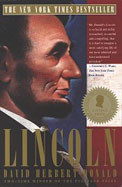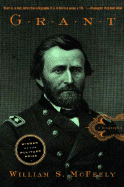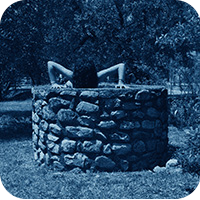Deliberately wearing the wrong clothes
I’m a Civil War novice. Dad paraded my siblings and I yawningly through battlefield after battlefied in our youth and I’ve come to know patriotic Galena, Illinois — Ulysses Grant’s place of residence at the outbreak of the war — as a second home over the last decade and a half. Still, I know next to nothing about the war or the period. I’m just an unreconstructed European Studies major dropout, I guess.
That’s changed recently, though. Or, is starting to anyway. During the course of the International Freedom Center project and the Eternal Egypt History Channel documentary I had the fortune of working with Peter Kunhardt, principle of the documentary team at Kunhardt Productions and descendant of Frederick Hill Meserve, one of the earliest and certainly the most prolific collector of Civil War photographs in the country. The collection, begun in the 1890’s, contains nearly 200,000 images including all of the known extant photographs of Abraham Lincoln. (Yeah, you read that right.) Peter and his brother Philip are conscientious stewards of this trove and their enthusiasm for the subject matter is infectious.
I met the brothers in Springfield a while back to tour the new Abraham Lincoln Presidential Library and Museum. It was a surprisingly moving experience. Hard to impress when it comes to museums, I left thoroughly so. So my interest was piqued and I purchased David Herbert Donald’s Lincoln. The biography was engrossing and powerful, an ample primer to the universe of scholarship and opinion surrounding Lincoln as we approach the bicentennial of his birth. Donald sticks very close to Lincoln and the primary sources, letting the eloquence and complexity of the railsplitter’s life emerge on its own. The picture that develops of Lincoln is of a politically-engaged but heretofore mostly politically-failed misfit whose genius, once in office, could be attributed to his ability to hold together magnetically repulsive personalities in his cabinet, to capitalize on his caricature-as-character backwoodsiness, and to steadfastly adhere to conviction inside a tempest of diverse national opinion.
Donald’s biography ends a few sentences after Lincoln is pronounced dead, basically hanging this Civil War-era neophyte off the narrative cliff. But, rather than pick up the thread at Reconstruction I’ve backed up a bit and started on William McFeely’s Grant. A different type of book than Donald’s, McFeely’s Grant often tells the story from inside Grant’s head, reading into his spartan correspondence and statements with something approaching pscyhoanalysis. Where Mary Todd Lincoln is a big part of Donald’s book, Julia Grant is the key to the life of her husband for McFeely. Her letters to Grant do not survive, but his replies to her serve as a touchstone for much of the insight into the man’s character. Grant’s relationship with his father — who seemed never happy with his son’s increasing accomplishment — is also closely read.
One similarity between these two very different giants of American history is striking. McFeely calls Lincoln and Grant both “masters at deliberately wearing the wrong clothes,” that is, at being able to use difference as an advantage, deriving vitality from the friction of idiosyncracy rather than the comforts of likemindedness.
I’m not finished with Grant nor, I suspect, with this period. You won’t see me re-enacting Bull Run any time soon, but I fear I’m hooked. Suggestions for future reading are very welcome.
Incidentally, for you parents out there, the Kunhardt brothers have another claim to fame. They are the grandsons of Dorothy Kunhardt, author of the classic children’s book Pat the Bunny.















